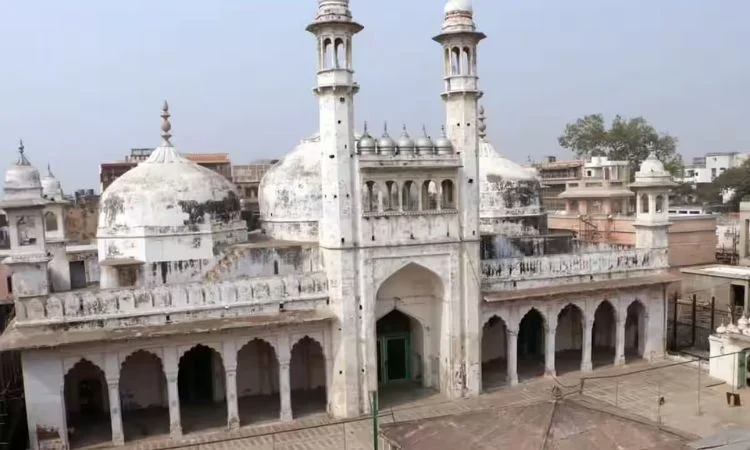The Allahabad High Court dismissed arguments opposing a civil complaint seeking the restoration of a temple where the Gyanvapi Mosque, Varanasi, is located on Tuesday, dealing a blow to Muslim petitioners.
It decided that the Places of Worship Act does not preclude the 1991 civil suit that sought the right of Hindus to worship there and the 2021 Varanasi court decision for the mosque’s assessment.

Why is this story important?
Hindu organizations on the right-wing claim that Muslim invaders destroyed Hindu temples before erecting multiple mosques, such as the Gyanvapi Mosque. Following its formation, the Bharatiya Janata Party (BJP) stoked controversy in the 1980s and 1990s by promoting it as a Hindu reclamation initiative. However, according to reports, other Hindu priests denied the accusations made by right-wing parties, particularly concerning the Gyanvapi issue, accusing them of promoting communal strife.
The HC requests that the Varanasi Court finish the hearing in six months.
A Varanasi court was also directed by the Allahabad High Court on Tuesday to wrap up the dispute case hearing in less than six months.
The petitions contesting the 1991 civil suit and the 2021 order were filed by the Anjuman Intezamia Masajid Committee (AIMC) and the Uttar Pradesh Sunni Central Waqf Board.
The AIMC is in charge of the Gyanvapi Mosque, which is situated next to the well-known Kashi Vishwanath Temple in Varanasi, Uttar Pradesh.
Hindu side advice: The Gyanvapi complex’s status can only be established by evidence.
Hindu side attorney Hari Shankar Jain told CNN-News18, “This ruling is correct. In this instance, the Places of Worship Act is not relevant. It is only possible to establish if a location is a religious building or not by evidence.”
To recall, the HC’s Justice Rohit Ranjan Agrawal reserved his decision on December 8 after hearing arguments from the petitioners and respondents.
Recognize court petitions
The Hindu side petitions state that the Gyanvapi Mosque is a component of a temple.
The Sunni waqf board and the AIMC, however, argued that the Places of Worship Act forbade the case. However, the claim has since been refuted.
According to reports, this law preserves the conditions that existed during India’s independence and forbids changing the identity of any holy site.
HC Allahabad approved the ASI survey.
Except for the sealed Wuzukhana, where a purported Shivling was discovered the previous year, the Allahabad High Court approved the archaeological examination of India’s (ASI) scientific examination of the Gyanvapi Mosque in August 2023.
It denied a petition that contested a Varanasi court judgment that gave the survey permission.
In a different development, the ASI on Monday sent a sealed cover containing a report on their scientific survey to the Varanasi District Court.
Significant developments have been made thus far
When five ladies petitioned the HC in August 2021 to be allowed to pray at the Shringar Gauri Temple close to the mosque, the long-running conflict came back to life.
After that, a video survey was mandated by the court, and it was through this that an alleged Shivling was discovered. The Muslim side asserted that it was a fountain nonetheless.
Following this, the Wuzukhana (ablution pond) was closed up, and the Gyanvapi complex was thoroughly examined scientifically.
Last month, the Supreme Court declined to get involved.
The transfer of cases pertaining to the Ganvapi issue to the bench of former Chief Justice Pritinker Diwaker of Allahabad High Court was ordered by Diwaker, and the Supreme Court declined to intervene in that decision last month.
DY Chandrachud, the Chief Justice, brought attention to the fact that Justice Prakash Padia, the previous judge, had reserved the judgment till 2021 and had held 75 sessions before failing to give it. Therefore, it made sense to transfer the cases.















